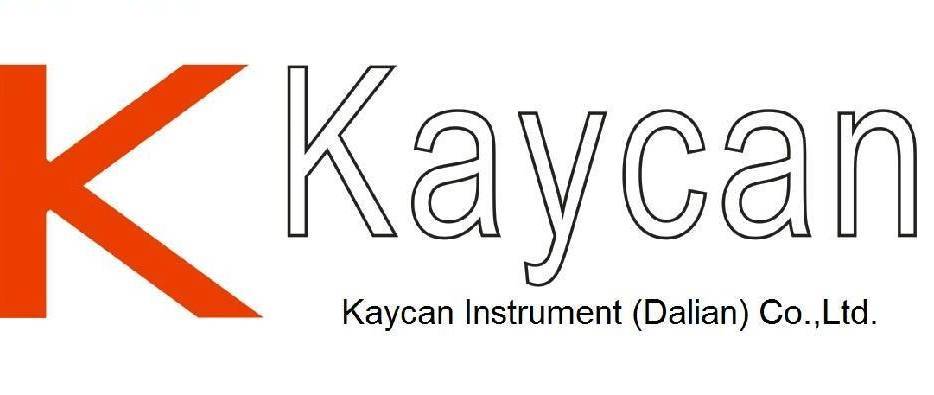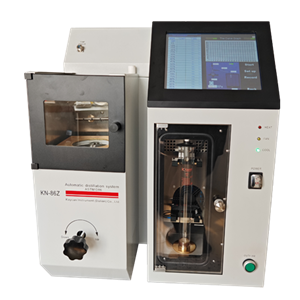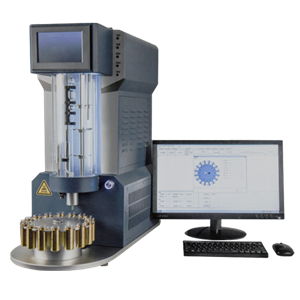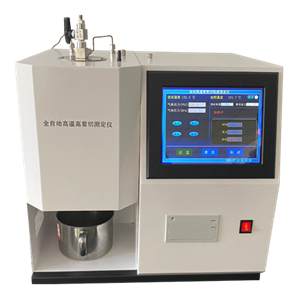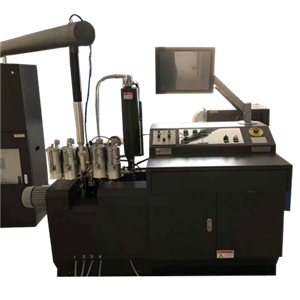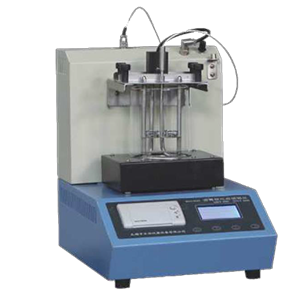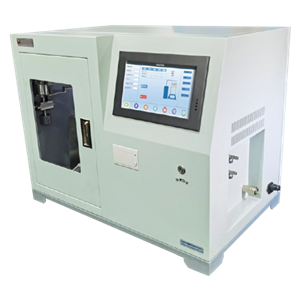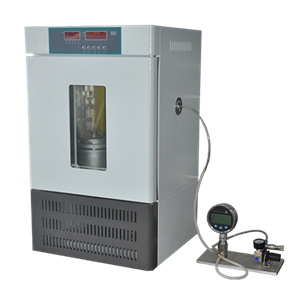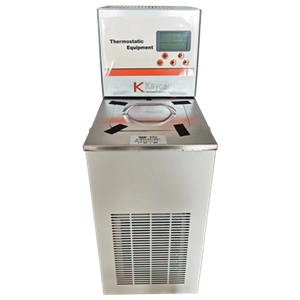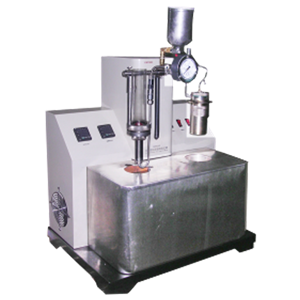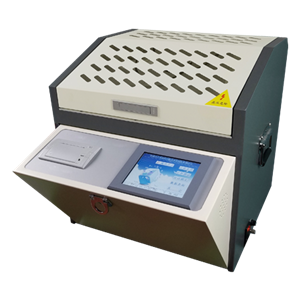-
ASTM D2699 Octane And Cetane Test
Research O.N. correlates with commercial automotive spark-ignition engine antiknock performance under mild conditions of operation. Research O.N. is used by engine manufacturers, petroleum refiners and marketers, and in commerce as a primary specification measurement related to the matching of fuels and engines. Empirical correlations that permit calculation of automotive antiknock performance are based on the general equation:
Send Email Details -
ASTM D36 Automatic Bitumen Softening Point of Asphalt (Ring-and-Ball)
KN-36 Apparatus for Softening Point of Asphalt (Ring-and-Ball Test apparatus) conforms to the ASTM D36 Standard Test Method for Softening Point of Bitumen (Ring-and-Ball Apparatus). The apparatus covers the determination of the softening point of bitumen in the range from 30 to 160°C [86 to 320°F] using the ring-and-ball apparatus immersed in distilled water [30 to 80°C] or USP glycerin (above 80 to 160°C).
Send Email Details -
ASTM D6421 Apparatus for Electronic Port Fuel Injector Fouling by Bench Procedure
KN-6421 Apparatus for Electronic Port Fuel Injector Fouling by Bench Procedure conforms to ASTM D6421 Standard Test Method for Evaluating Automotive Spark-Ignition Engine Fuel for Electronic Port Fuel Injector Fouling by Bench Procedure. This test method covers a bench test procedure to evaluate the tendency of automotive spark-ignition engine fuel to foul electronic port fuel injectors (PFI). The test method utilizes a bench apparatus equipped with Bosch injectors specified for use in a 1985-1987 Chrysler 2.2-L turbocharged engine. This test method is based on a test procedure developed by the Coordinating Research Council (CRC) for prediction of the tendency of spark-ignition engine fuel to form deposits in the small metering clearances of injectors in a port fuel injection engine.
Send Email Details -
ASTM D1742 Oil Separation From Lubricating Grease
When a lubricating grease separates oil, the remaining composition increases in consistency. This can affect the ability of the product to function as designed
Send Email Details -
ASTM D2386 Automatic Freezing Point Of Aviation Fuel
The freezing point of an aviation fuel is the lowest temperature at which the fuel remains free of solid hydrocarbon crystals that can restrict the flow of fuel through filters if present in the fuel system of the aircraft. The temperature of the fuel in the aircraft tank normally falls during flight depending on aircraft speed, altitude, and flight duration. The freezing point of the fuel must always be lower than the minimum operational tank temperature
Send Email Details -
KN-SY Circulating Water Bath
KN-SY Circulating Water Bath can be widely used in drying, concentration, distillation, impregnated chemical reagents, impregnated drugs and biological products, and can also be used for constant temperature heating in water baths and other temperature tests, and is an essential tool for biology, genetics, viruses, aquatic products, environmental protection, medicine, health, biochemical laboratories, analysis rooms, education and scientific research.
Send Email Details -
GOST 7143 Ultimate Strength and Thermostrengthening Tester
KN-7143 Ultimate Strength and Thermostrengthening Tester conforms to GOST 1743 Greases. Method for Determination of Ultimate Strength and Thermostrengthening. It is mainly used to measure the pressure of the grease when it is displaced in the threaded pipe of the plasticizer at the test temperature, and convert it into a strength limit value, which is expressed as Pa. The appearance design of the grease strength limit tester is beautiful and generous, the structure design is reasonable, the operation is convenient, and the results are accurate
Send Email Details -
ASTM D924 Dielectric Dissipation Factor Tester
Dissipation Factor (or Power Factor)—This is a measure of the dielectric losses in an electrical insulating liquid when used in an alternating electric field and of the energy dissipated as heat. A low dissipation factor or power factor indicates low ac dielectric losses. Dissipation factor or power factor may be useful as a means of quality control, and as an indication of changes in quality resulting from contamination and deterioration in service or as a result of handling.
Send Email Details
